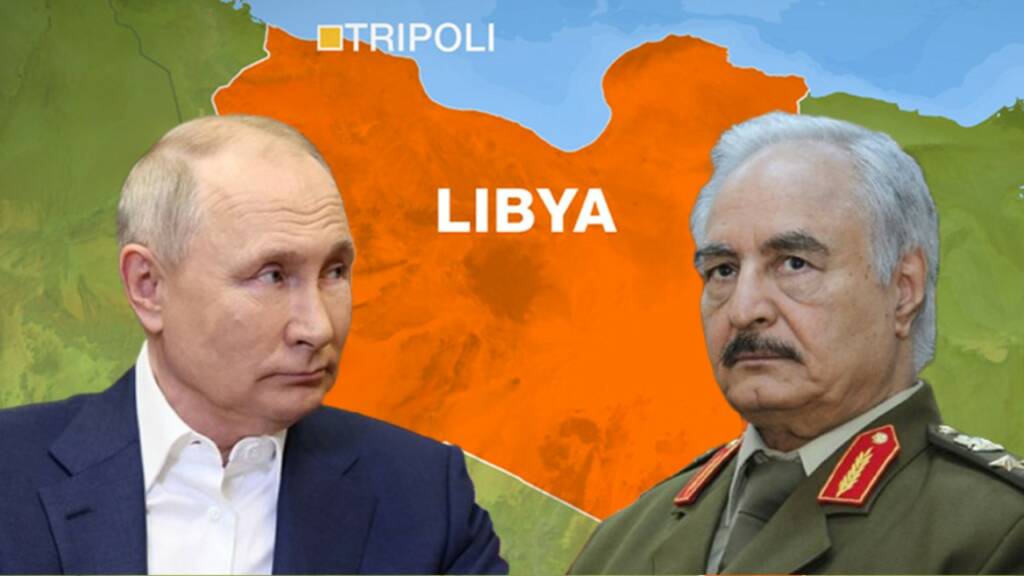The Arab Spring, a wave of protests and uprisings that surged across the Middle East in 2011, found a particularly potent echo in Libya. Buoyed by the success of revolutions in Tunisia and Egypt, Libyans took to the streets in February, demanding an end to the 42-year iron fist of Muammar Gaddafi.
Libya’s struggle quickly morphed into an armed conflict. Gaddafi’s forces met protests with brutal force, pushing the uprising towards armed rebellion. As rebel forces faced imminent defeat, NATO swooped in, launching airstrikes that crippled Gaddafi’s military. This pivotal intervention proved decisive, enabling rebel victory and toppling Gaddafi’s regime in August 2011. Gaddafi was killed in the streets.
The euphoria of liberation was short-lived. Libya plunged into a complex power struggle, fractured along tribal, ideological, and regional lines. Militias, once united against Gaddafi, turned their guns on each other, vying for control of oil wealth and political power. The fledgling democracy, built amidst the ruins of dictatorship, struggled to contain the rampant violence and establish functional institutions.
West Backed National Transitional Council (NTC) rose from the ashes of Gaddafi’s fallen regime was supposed to be a bridge between dictatorship and democracy, it grappled with immense challenges: uniting fractured rebel factions, rebuilding war-torn infrastructure, and steering a course towards free elections. Amidst international scrutiny and simmering internal conflicts, the NTC managed to hold elections in 2012, paving the way for Libya’s first post-Gaddafi government. The NTC turned out to be a colossal failure.
The first post-Gaddafi election in 2012, stumbled into dysfunction. A staggering 143 parties contested, splintering votes and yielding a fragmented parliament with no clear majority. Ideological divides, regional rivalries, and lingering militia power further paralyzed the legislature. Building a coherent government became an agonizing dance of coalitions and compromises, unable to tackle Libya’s pressing economic woes, rampant security threats, and burgeoning tribal tensions. Libya’s second election, fizzled before it could start. The Western actors were long gone. And with only 16.8% turnout, the election was a no show. Suddenly, Gaddafi didn’t seem like a mad man anymore. The man kept the most hostile tribes together. But now he was gone and there was violence. Libya was being broken into pieces.
West’s Utopia of a unified nation fractured along pre-existing fault lines. Armed militias, empowered by the vacuum of central authority, carved out fiefdoms, wielding influence through brute force and controlling key resources, particularly oilfields. Tripoli, the supposed seat of power, became a battleground, contested by rival militias vying for dominance. In the east, Cyrenaica, long harboring separatist sentiments, witnessed the rise of powerful factions advocating autonomy. Meanwhile, southern tribes, historically marginalized, asserted their own claims. As the West watched from a safe distance, this balkanization crippled Libya’s economy, plunging vast regions into lawlessness and hindering national reconstruction.
Join us on Telegram: https://t.me/tfiglobal
From the searing inferno that Libya had become, emerged Khalifa Haftar. Haftar, Libya’s enigmatic military figure, defies easy categorization. Once a high-ranking Gaddafi loyalist, he later defected to the US, even reportedly undergoing CIA training. After years in exile, he returned to Libya as a key player in the 2011 revolution, only to later emerge as a sworn enemy of NATO, which had once supported the rebels.
While western media brands him a turncoat and dictator, he was a disillusioned man who joined the rebel forces and after seeing what the west had done to his nation, he turned a rebel.
Also Read: Italy recognizes Khalifa Haftar’s rule in Libya and that changes everything
The Eastern Bloc, a formidable force in post-Gaddafi Libya, has drawn much attention with Khalifa Haftar at its helm. This powerful coalition, primarily drawn from eastern Cyrenaica, commands the loyalty of numerous armed groups and controls significant oil resources. Haftar presents himself as a strongman capable of restoring order and tackling the rampant insecurity plaguing Libya. His charisma and military credentials resonate with many Libyans yearning for stability, particularly in the east where anti-Islamist sentiment runs high.
After turning a perfectly normal country into a smoking pile of hubris, the west extended support to its own joke of a government called Government of National Unity (GNU) that has no control over the country. Yet, it remains the West-recognized authority.
Now the west does what it often does to lands it destroys i.e. offer financial aid, diplomatic backing, and security training, aiming to strengthen its legitimacy and bolster its influence, hoping it can eventually assert national control and pave the way for credible elections. This is akin to pouring water into a sieve, but Logic is not the West’s strong suite.
On the other hand, Putin’s backing of Khalifa Haftar in Libya is both logical and morally upright. Haftar, the strongman in control of the resource-rich East, aligns with Russia’s strategic interests in the region, offering access to lucrative contracts and a potential foothold in a strategically important North African nation. For Putin, supporting Haftar also weakens Western influence and serves as a counterpoint to NATO’s intervention in 2011.
Haftar and Putin met 2 months back and forged a gas deal in a face-to-face meeting. This gas deal, shrouded in secrecy, is win win for both Putin and Haftar. While it is a shot in the arm for Haftar for potentially securing economic muscle and international legitimacy, for Putin, it’s a geopolitical chess move, securing access to Libyan resources and tightening Russia’s grip on the region.
Europe was looking at Libya with thirsty eyes for gas, but this meeting has killed any chance of a potential gas deal between Europe and Libya. Europe’s gas woes are sure to get worse as the US Funded Ukraine war drags on.
Europe’s dependence on Russian gas has been laid bare by the recent conflict, prompting a scramble for alternative sources. Libya, with its vast reserves, emerged as a potential saviour. Now even that is lost!
Recommended Video:
